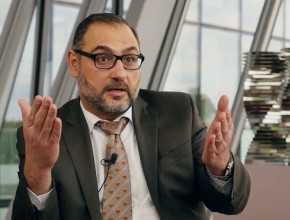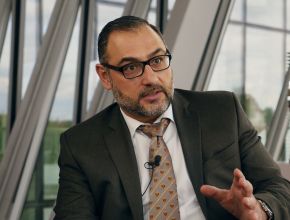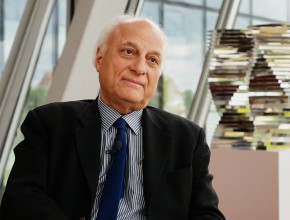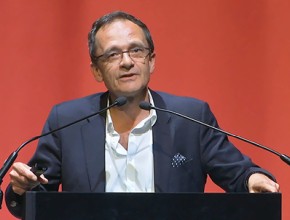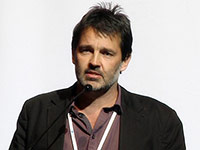Do you think point-of-care ultrasound will replace regular diagnostic radiology and echocardiography?
Khalid Azzam: It will never replace them. This is a fear of some radiologists: everyone – the emergency room doctor, the intensivist, the physician, the internist – everyone is doing point-of-care ultrasound and they are not going to send patients to do a proper ultrasound study. That, in my opinion, will never happen. There are even some studies which show that doing point-of-care ultrasound may increase the number of actual ultrasounds requested. The reason for that is when you are doing point-of-care ultrasound, you are trying to answer a specific question. But what happens sometimes is, you see something different, you are not trained in full ultrasonography, and you wonder what this is. The rule of thumb that people who practice point-of-care ultrasound advocate for is that when you see an abnormality that you are not expecting, you send for a proper study. So you are looking for fluid and you see a big aorta – send for a proper study, for a proper measurement of the aorta.
Specifically with echocardiography – this is another big one – where cardiologists think that now everybody is going to do a point-of-care or focus cardiac ultrasound and there will be no echos requested. The answer to that is no. On the other hand, there may be some trend to increase the number of echocardiograms or ultrasounds done. But then you wonder, if there is an increase, why should we do this point-of-care ultrasound, it is going to cost more. In my opinion, point-of-care ultrasound helps us do the right procedure or [choose] the right diagnostic modality. Sometimes you have a patient with some abdominal abnormality and you say, “I want to do a CT scan,” but when you start doing point-of-care ultrasound you say, “maybe the CT scan is a wrong one and I should do a formal ultrasound.” So that way you will focus direction to the proper diagnostic procedure that you need to do next after the point-of-care ultrasound. So there will be no increase overall – it will actually be beneficial for the patient and there will be no decrease, I do not think so.
 English
English
 Español
Español
 українська
українська



